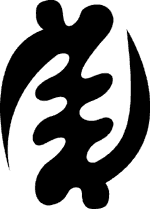GrahamB wrote:You lost me at "don't have enough Qi in their bodies"
I have had a feeling/idea that some aspect of Qi could be understood as interstitial fluid ( https://en.wikipedia.org/wiki/Interstitial_fluid ) which is the link between circulatory system and tissue cells, and thereby the way which cells get their nutrition and maintain healthy metabolism.
"not enough Qi" could be then understood as having somewhat chronic issue of dehydration or imbalance/deficit of nutrients within the fluid(or whole body..). And heavy exercising in such condition would most likely be harmful in long term. But how relevant is such condition today in modern world, when there is abundance of clean water and food, I have no idea.. I suppose it depends on which group of people we are observing and where in the world..? Hardcore nerds who rarely exercise and eat too much trash could be perhaps one example of deficient Qi?
 Or the starving children in Africa...
Or the starving children in Africa... 
Any competent modern healthcare professional or personal trainer/etc... would most likely notice the issue in their patients/customers, but would of course identify and diagnose it with very different words, than deficient Qi..

And within this idea, heavy exercising would deplete the fluid of nutrients, sweating depletes the fluid itself, and thereby "drains Qi"... This aspect of Qi allthought is not very hard to get back if you're healthy and can get good nutrition and rest.





